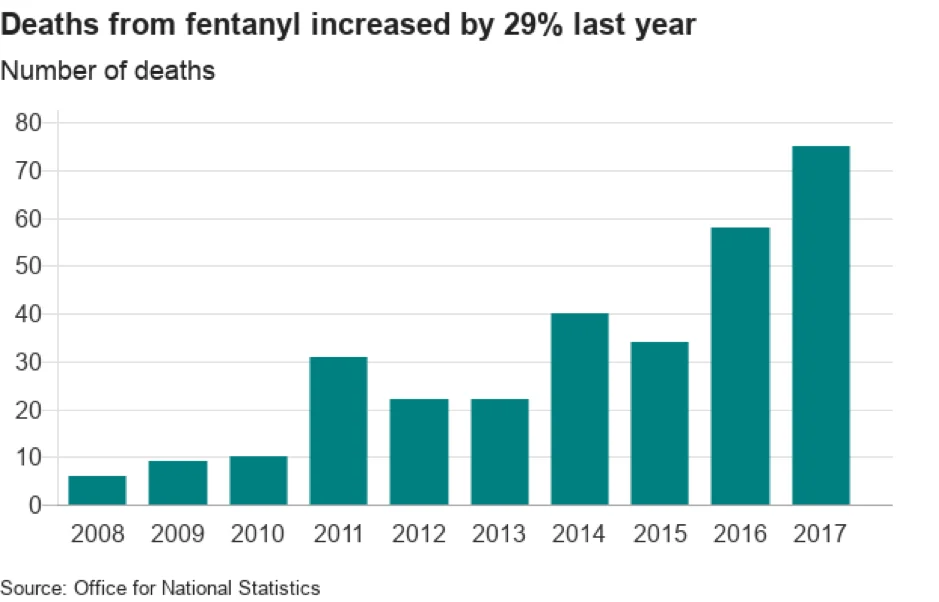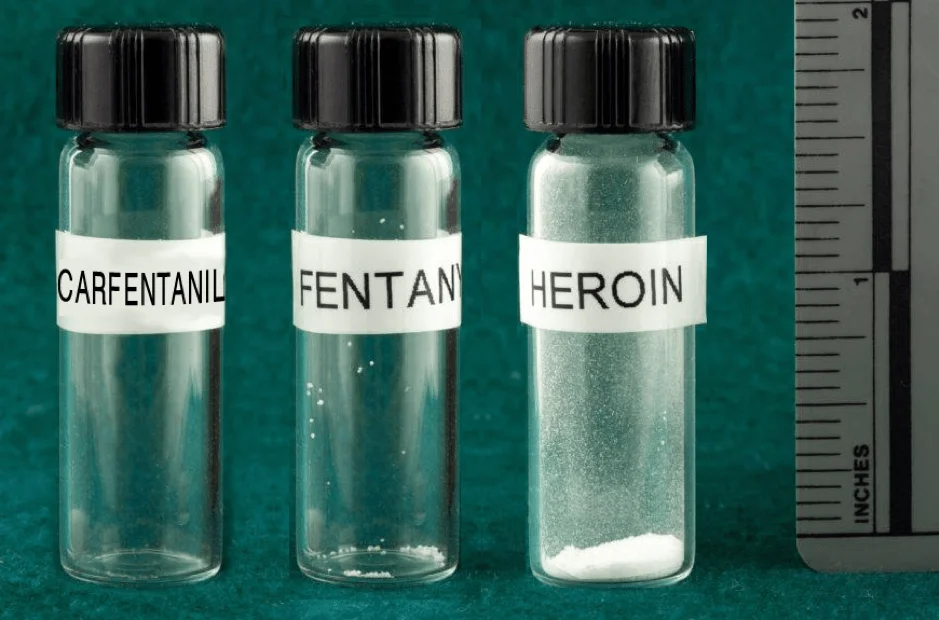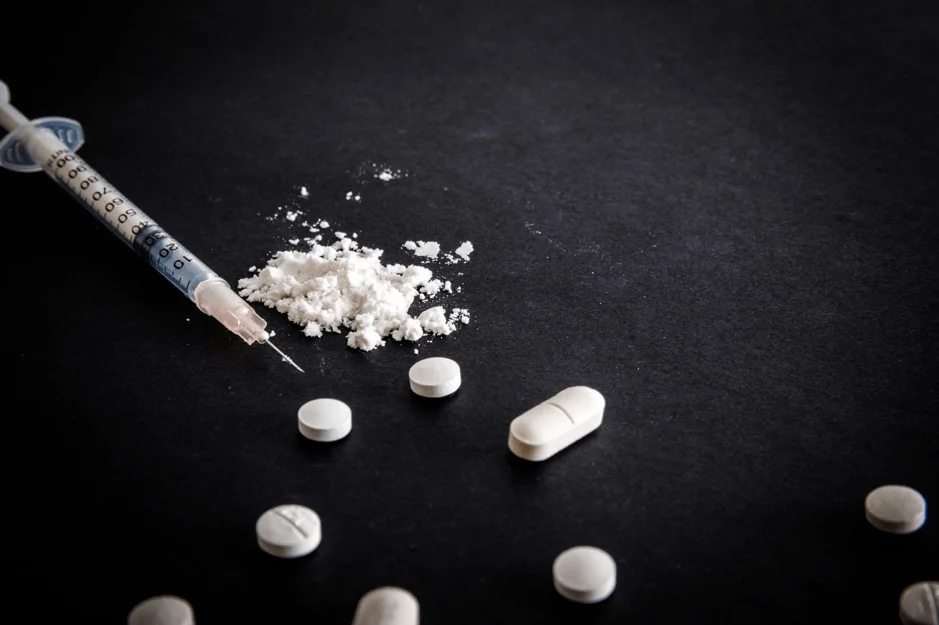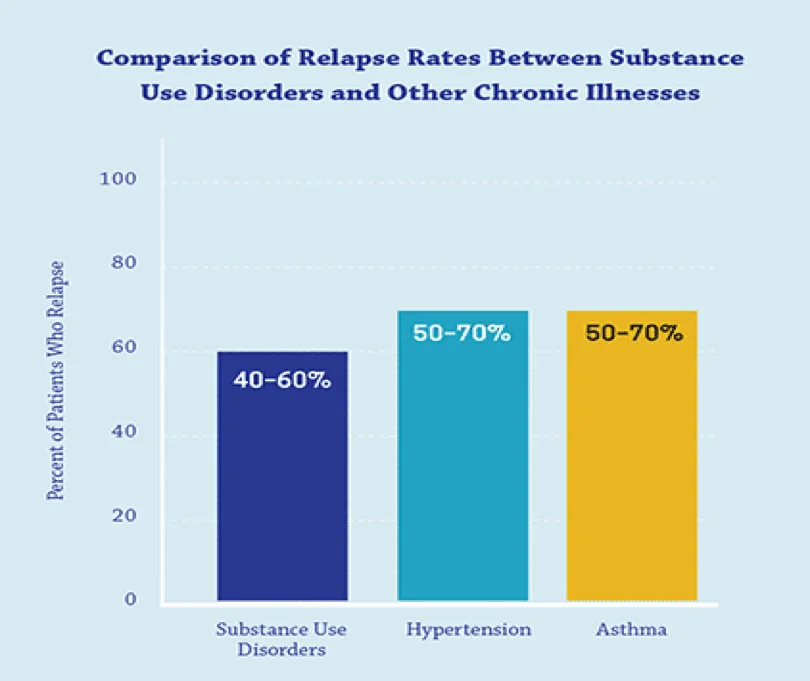Fentanyl Abuse, Addiction & Dependence
Useful Links
Fentanyl Abuse, Addiction & Dependence
Fentanyl abuse and addiction is not something that has previously been a problem for this country. However, times have changed and as street drugs in the UK have gotten stronger, dealers have become more creative in cutting street opiates, making them cheaper to buy and even more powerfully addictive.
If you or a loved one are using Fentanyl illicitly or abusing a fentanyl prescription, it is vital that you seek professional help. Stopping this heavyweight opiate is extremely difficult and not stopping it could cost you your life.
What is Fentanyl?
Fentanyl also spelt Fentanil, is a synthetic (man-made) opiate analgesic, used to treat severe pain and also used in medical anaesthesia. It is often mixed with other medications to increase its potency.
Fentanyl is also recreationally used and abused worldwide. Notably, in the UK it is often mixed with street Heroin and Cocaine – making these illicit Class A substances extremely volatile and unpredictable in their effects. Traces of Fentanyl have also been found in street Oxycodone, counterfeit Xanax, Chemsex drugs and Cannabis.
The onset of Fentanyl’s pharmaceutical effects are rapid and the short-acting version of the drug typically has effects that last up to 2 hours. Slow release Fentanyl medications and transdermal patches can provide relief from pain around the clock.
Pharmaceutical Fentanyl is available in a solution for injection (Sublimaze), transdermal patch to be applied to the skin (Durogesic), as a nasal spray, in oral drops, lozenges, lollipops or tablets to be taken orally (Actiq) and in a sublingual preparation (Effentora).
Street Fentanyl generally comes in powdered form that can be smoked, snorted, swallowed or prepared for injection. It is also available in tablets and on blotter paper. This illicit street Fentanyl is very different from pharmaceutical Fentanyl and extremely dangerous.
Street Fentanyl is prepared in homemade laboratories or imported from overseas. It is the illicit street Fentanyl that is responsible for the stark rise in Fentanyl-related deaths in recent years.

Fentanyl Related Deaths in England and Wales in 2017
Fentanyl has been instrumental in the notable rise in opiate-related deaths over the past decade. Especially over the past three years, where illicit Fentanyl has spread in its availability throughout the UK.
Statistics released by the Office for National Statistics (ONS) in March 2018, showed that there had been nearly an 80% increase in deaths from Fentanyl and Fentanyl analogues in 2017 compared to statistics from 2016 in England and Wales.
Amongst the prescribed, controlled and illicit opiates, Fentanyl has become a popular choice for drug abusers. This drug is extremely powerful and in uneducated hands, it can be lethal.
Opiate-related deaths now account for more than half of all drug misuse deaths recorded. In 2017, 3756 drug misuse deaths were registered with the Office for National Statistics. Of these deaths, 1985 were related to opiates – including Heroin and Morphine (1164 deaths), Tramadol (385 deaths), Methadone (367 deaths) and Fentanyl and related analogues (106 deaths).
Street Names for Fentanyl
Just like any other illicit street drug, Fentanyl has many names, Common street names for Fentanyl include: drop dead, serial killer, apache, He-man, china girl, goodfella, murder 8, jackpot, TNT and shine.
Many of Fentanyl’s street names and nicknames are representative of its lethal potency.
How Strong is Fentanyl?
Fentanyl is a very powerful narcotic drug. There is only one drug stronger than Fentanyl from the opioid family of drugs and that’s Carfentanil.

Fentanyl is up to 100 times stronger than morphine and up to 50 times stronger than street Heroin (depending on purity). A small amount of Fentanyl cut with street Heroin can easily overdose an individual who has no tolerance or previous experience with this drug.
Carfentanyl, also spelt Carfentanil, which is 10,000 times stronger than Fentanyl and used as an elephant tranquilliser, was first seen mentioned in death certificates in 2017 and accounted for 27 deaths.
It is a terrifying fact that these lethal illicit opioids are often unknowingly consumed.
Mixing Fentanyl with Other Drugs
As fentanyl is so strong, its effects can be unpredictable if a prescription is not followed to the letter. Abusing Fentanyl can cause death and the following combinations of drugs and Fentanyl are known to be particularly dangerous and can easily lead to overdose:
● Fentanyl + alcohol: increased respiratory depression and adverse effects
● Fentanyl + MAOI antidepressants: can result in severe and unpredictable reactions.
● Fentanyl + benzodiazepines: increased drowsiness and respiratory depression
● Fentanyl and heroin: increased effects of drowsiness and respiratory depression
● Fentanyl + cocaine: can result in severe and unpredictable potentially lethal effects
What Fentanyl is Used for
Medically, its use is widespread throughout hospitals in the UK. As a powerful controlled narcotic drug, it is only legally available on prescription. Fentanyl provides effective pain relief for the end of life patients, those with short term severe postoperative pain and those with chronic pain conditions who have become tolerant of other prescribed opiates.
Illicit Fentanyl is only associated with abuse, addiction and overdose. This drug should never be used for recreational purposes due to its unpredictability and addictive properties.
How Quickly Does Fentanyl Addiction Occur?
Fentanyl addiction occurs very rapidly, regardless of whether the drug is prescribed or abused. For this reason, extreme caution is always exercised with its prescription.
Much like any other opiate, Fentanyl addiction can occur within 5 to 10 days of daily use. As it is so powerful you do not need to even use it daily to become physically addicted.
Some individuals inadvertently become addicted to it by taking illicit street drugs that have been cut or mixed with it.
The Effects & Side Effects of Fentanyl
Like any drug of the opiate/opioid class, Fentanyl carries typical opiate side effects. The severity of these side effects depends on the dosage of Fentanyl and the individual’s tolerance to Fentanyl.
When used pharmaceutically, a titration process should be implemented by health care providers to ensure that the patient remains safe and not at risk of overdose from Fentanyl’s effects.
Effects and side effects of fentanyl include:
- Arrhythmias & palpitations
- Confusion
- Constipation
- Dizziness
- Drowsiness
- Dry mouth
- Euphoric mood
- Excessive sweating
- Flushing
- Hallucination
- Headache
- Miosis (excessive constriction of the pupil)
- Opioid dependence & addiction
- Respiratory depression (with high doses)
- Urinary retention
- Visual impairment
- Vomiting (more common on initiation)
Mixing Fentanyl with alcohol or other drugs, even over the counter medications, makes Fentanyl’s effects more pronounced and unpredictable. Fentanyl overdose only occurs when the drug is misused or abused.
Fentanyl Abuse
Any Fentanyl that is taken off prescription is classed as Fentanyl abuse, as is mixing Fentanyl with alcohol or other drugs, including prescription drugs and over the counter medications for more pronounced effects.
Deaths that result from Fentanyl result from taking it illicitly or from abusing a prescription. Fentanyl is safe to take when a doctors prescription is adhered to and not diverted from.

Another form of Fentanyl abuse is changing the route of administration for greater effect. Examples of this include crushing and snorting a tablet or injecting intravenously when the route is oral administration.
Fentanyl Dependence
Taking Fentanyl regularly over any protracted period of time, even when taken as prescribed, will result in Fentanyl dependence.
As with an opiate drug, tolerance and dependence occur quite rapidly. If you are prescribed Fentanyl for more than 5-7 days it is likely you may well experience some unpleasant withdrawal symptoms.
If you have been taking Fentanyl in any form for more than a week, please speak to your physician regarding tapering off regime.
If you find you are unable to reduce the amount of Fentanyl you have been taking, even with the support of a doctor, an inpatient medical drug detox is recommended. This can be accessed through a private CQC registered drug rehab and is something that the Perry Clayman Project specialise in.
Fentanyl Dependence
Fentanyl dependence can occur even when following a doctors prescription. It is different for addiction as the medication is taken for the purpose intended and only for the duration it is prescribed.
Fentanyl addiction is more commonly associated with Fentanyl abuse.
Once physically dependent on Fentanyl a medical detox or reduction regime is required to ensure that the drug is stopped safely. Fentanyl withdrawal is extremely unpleasant and the strong drug cravings that this withdrawal produces makes it very difficult for a Fentanyl dependent individual to stop without professional support.
Fentanyl Addiction
Fentanyl addiction is more than just a physical dependence to Fentanyl. Even once the Fentanyl has been safely stopped through medical detox, an addicted individual will require a drug treatment programme in order to maintain their drug abstinence.
Addiction occurs through structural changes in the brain taking place as a direct result of repeated exposure or abuse of an addictive drug. In the case of Fentanyl addiction, stopping the drug is rarely sufficient as the individual’s brain will remain in the same structurally altered state.
For anyone suffering from an addiction to Fentanyl is vital that professional addiction treatment is sought. Evidence-based addiction treatments have been proven to rewire the brain and teach valuable coping strategies, relapse prevention techniques and healing.
Relapse Rates for Fentanyl Addiction and Abuse
Relapse rates for any kind of addiction are high, estimated at between 40-60% and even higher for an individual with a chronic long term addiction. Addiction is a life-threatening disease that only ever gets progressively worse without treatment.

However, it is important to note, that with the correct treatment and support an addicted individual can access recovery and stay abstinent. Their chances of relapse are dramatically reduced by undergoing a comprehensive and bespoke drug treatment programme. Like any other disease or chronic illness, addiction requires bespoke treatment and continued support in order to overcome.
Fentanyl Withdrawal
Common Fentanyl Withdrawal Symptoms
Fentanyl withdrawal symptoms can occur within as little as a few hours after taking the last dose (depending on the route of administration and frequency of taking the drug).
Physical Withdrawal From Fentanyl – The Symptoms
- Aches in bones and muscles
- Abdominal cramps and aches
- Brain fog
- Diarrhoea
- Excessive sweating
- Goosebumps and chills
- Headache
- Insomnia
- Lethargy
- Muscle aches and cramps
- Nausea and loss of appetite
- Restlessness and listlessness
- Strong drug cravings
- Sneezing and watery eyes
- Vomiting
Psychological withdrawal symptoms from Fentanyl include:
- Anxiety
- Agitation
- Aggression
- Depression
- Hallucinations (auditory or visual)
- Irritability
- Strong drug cravings
- Temporary psychosis
If you or a loved one are planning on stopping Fentanyl, it is very important that you seek medical and addiction advice first.
Coping with Fentanyl Withdrawal Symptoms
Coping with Fentanyl withdrawal symptoms can be extremely hard, especially if you suffer from addiction. You will not only physically crave the drug but mentally obsess over it too. This can prove to be too much for many suffering from addiction and is what leads them back to relapse.
As one of the strongest opioids available, Fentanyl withdrawal symptoms can be extremely distressing and if not managed medically they can become life-threatening.
Fentanyl withdrawal symptoms occur when there is a dependence on the drug and when any less than the body and brain has become accustomed to is taken. Withdrawal symptoms can also occur when the body has developed a tolerance to a certain dosage of the drug.
A medical Fentanyl detox will drastically reduce the severity of opiate withdrawal symptoms to manageable levels and shorten the duration of withdrawal. Clinically, it is proven to be the safest way to stop any opiate/opioid dependence and is the first step to recovery from addiction.
By detoxing from Fentanyl within a drug rehab you will not only benefit from a full medical drug detox but you will also have vital psychological support as well as valuable input and help from qualified drug counsellors.
Drug rehab also provides a safe, recovery focused drug-free environment, which will provide you with the opportunity to fully recover and learn essential relapse prevention techniques.
Signs of Fentanyl Overdose
Recognising the signs of Fentanyl overdose could potentially save a life. If you spot these symptoms in another it is important to contact the emergency services immediately:
Fentanyl overdose is often fatal – The symptoms include:
- Pinpoint pupils
- Unresponsive to stimuli
- Cold clammy skin
- Slowed or irregular respiratory rate
- Bluish tinge to the lips and skin
- Seizures
- Extreme drowsiness
How Long Fentanyl Stays in Your System
How long Fentanyl stays in your system will be dependent on a number of factors that are personal to you.
Factors that can affect how long Fentanyl stays in your system include your BMI, your metabolic rate, age, gender, how long you have been taking the drug for and the dosage of the drug, other medications or drugs that you may be taking and the method of detox.
With Fentanyl transdermal patches, lozenges and tablets, the drug takes approximately 3 – 5 days to be completely eliminated from your system. Fentanyl can be detected in urine for up to 3 days after taking it. With chronic long term use, detection times can be longer.
Free Treatment for Fentanyl Addiction
If you or a loved one need free treatment for opiate addiction or dependence, please contact your local drug and alcohol services and your GP.
Regardless of whether you have been taking Fentanyl illicitly or legally, you are entitled to free help on the NHS. Drug and alcohol teams provide keywork support and groups for those struggling with a substance misuse problem. You can refer yourself directly if you would prefer not to go through your doctor.
Your GP will also be able to advise and support you regarding a fentanyl reduction regime.
12 Step Meetings For Fentanyl Addiction
Narcotics Anonymous UK provides free support and self-help groups for addicts seeking recovery from substance addiction.
Private Treatment and Rehab for Fentanyl Addiction
Fentanyl addiction can be treated successfully at any one of our four CQC registered private rehab centres. Rehab Today by PCP will provide you or your loved one with a full medical Fentanyl detox and bespoke drug rehabilitation programme.
We treat the root causes of drug addiction using the latest in evidence-based addiction treatments and techniques, giving our patients the best chance of successfully overcoming their addiction once and for all.
To find out more about our Fentanyl detox programmes and fentanyl recovery programmes please call us directly or complete our online assessment form and we will call you.
Sources:
Office for National Statistics
https://medlineplus.gov/druginfo/meds/a605043.html
Nelson L, Schwaner R. Transdermal fentanyl: Pharmacology and toxicology. J Med Toxicol. 2009;5(4):230-241. doi:10.1007/BF03178274.
